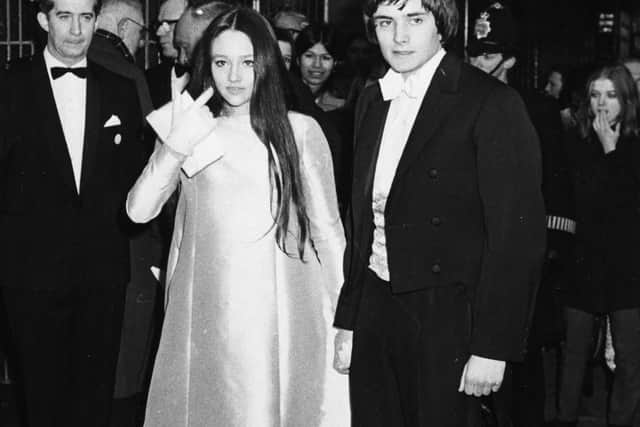Olivia Hussey and Leonard Whiting: why Romeo and Juliet stars have launched a lawsuit over 1968 film


Leonard Whiting and Olivia Hussey captured the hearts of audiences around the world with their performance during the 1968 version of Romeo and Juliet. The film was critically acclaimed and was nominated for four Academy Awards at the time, with the romantic tragedy catapulting Whiting and Hussey to a new found level of fame.
However the making of the film is not without its controversy and the two leading actors have now filed a lawsuit over the 1968 film and its producers at Paramount, accusing the production company of sexual harrassment, fraud, sexual abuse and intentional infliction of emotional distress.
Here is everything you need to know.
What’s the lawsuit about?
Advertisement
Hide AdAdvertisement
Hide AdLeonard Whiting and Olivia Hussey have launched a lawsuit for more than $500 million (£414m) over a nude scene in the 1968 film shot when they were teenagers. Hussey, then 15 and now 71, and Whiting, then 16 and now 72, filed the suit in Los Angeles County Superior Court
Director Franco Zeffirelli, who died in 2019, initially told the two that they would wear flesh-coloured undergarments in the bedroom scene that comes late in the movie and was shot on the final days of filming, the suit alleges. The complaint states that Zeffirelli ended up being untrue to his word.


On the morning of the shoot, Zeffirelli told Whiting, who played Romeo, and Hussey, who played Juliet, that they would wear only body make-up, while still assuring them the camera would be positioned in a way that would not show nudity. Yet they were filmed in the nude without their knowledge, in violation of California and federal laws against indecency and the exploitation of children, the suit says.
Zeffirelli told them they must act in the nude “or the picture would fail” and their careers would be hurt, the suit says. The actors “believed they had no choice but to act in the nude in body make-up as demanded”. Whiting’s bare buttocks and Hussey’s bare breasts are briefly shown during the scene.
Advertisement
Hide AdAdvertisement
Hide AdThe business manager of the two actors, Tony Marinozzi, told Variety: “What they were told and what went on at the time were two different things. They trusted Franco. At 16 as actors, they took his lead that he would not violate that trust they had. Franco was their friend, and frankly, at 16, what do they do? There are no options. There was no #MeToo.”
The complaint also states that Whiting and Hussey have suffered mental anguish and emotional stress in the 55 years following the film’s release. It claims that despite their breakout performances, they have lost out on future job opportunities as a result of the film.
What has their lawyer said?
The pair’s attorney Solomon Green said: “These were very young naive children in the 60s who had no understanding of what was about to hit them. All of a sudden they were famous at a level they never expected, and in addition they were violated in a way they didn’t know how to deal with.”
The lawsuit states that both actors are seeking compensation of around $500,000,000 to match the amount that the film has earned since 1968.
Paramount have not responded to the allegations.
Comment Guidelines
National World encourages reader discussion on our stories. User feedback, insights and back-and-forth exchanges add a rich layer of context to reporting. Please review our Community Guidelines before commenting.
